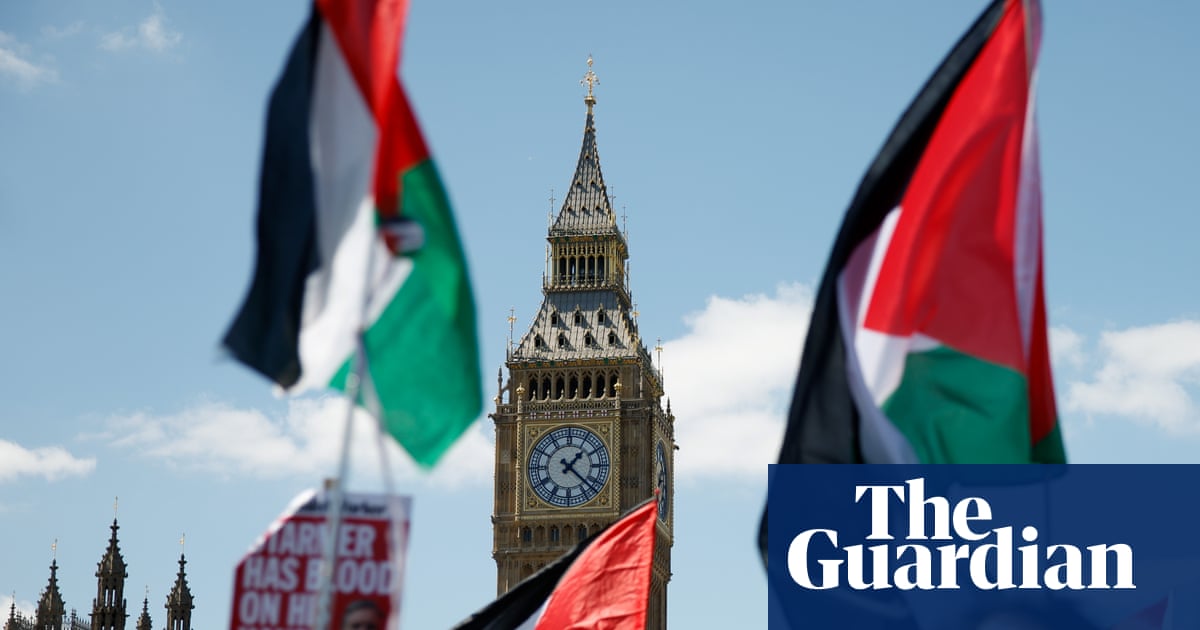The family of a Sikh activist who died suddenly in 2023 have made new calls for an inquest after a pathologist found the result of the postmortem exam “does not mean that a poisoning can be completely excluded”.
Avtar Singh Khanda, 35, died in June 2023, four days after being admitted to a hospital in Birmingham feeling unwell. The official cause of death was acute myeloid leukaemia, a blood cancer.
In a letter to the West Midlands coroner Louise Hunt seen by the Guardian, Michael Polak, a barrister acting for Khanda’s family, said samples were not tested for “nerve agents, biological agents or nuclear agents”, which could have brought about an aggressive cancer, and urged her to reverse the previous decision not to open an inquest into his death.
Khanda’s death, which family and friends believe was suspicious, happened against the backdrop of India’s alleged involvement in an international campaign of transnational repression targeting Sikh separatists, denied by India.
UK police had said there was no reason to suspect foul play in Khanda’s case, but Polak’s letter includes a witness statement from Jaswinder Singh, a friend of Khanda and an adviser to Sikh Federation UK, who said West Midlands police had confirmed in a 2024 meeting that the police investigation did not include “reviewing (Khanda’s) phones, laptop, talking to his friends, co-workers, searching his home address (or) considering information about attacks on Sikh activists around the world”.
Two activists, also linked to the separatist movement, were murdered within weeks of Khanda’s death in Canada and Pakistan, while a third survived an attempt on his life in the US.
Polak’s letter includes the report of consultant forensic pathologist, Dr Ashley Fegan-Earl, who was provided with Khanda’s death certificate, hospital notes, and a toxicology report. “Consideration should be given as to whether the deceased could have been exposed to substances that may result in the development of an acute leukaemia,” he said.
In his statement Fegan-Earl, who was commissioned by lawyers acting for Khanda’s family, noted that “toxicological analysis in hospital did not provide any unusual results” in Khanda’s case, but said the “limitations of such analysis must be borne in mind”, before describing how “not all poisons leave behind them a defined clinical signature” and how some toxins required specialist testing to detect.
He added: “I make no criticism of the toxicology that has been carried out in this case, but hope that the above highlights that a negative drug screen does not mean that a poisoning can be completely excluded, particularly with the use of more exotic substances that are not frequently encountered.”
Fegan-Earl added: “I have been involved with a number of cases where there has been suspicion of poisoning by unusual agents. One case … required extremely specialised testing at Kew Gardens … two other cases involved potential poisoning by foreign powers.
“These involved the use of multiple experts above and beyond the normal expertise of toxicologists, including expertise from Porton Down. There are some poisons that can only be identified if they are suspected.”
Khanda applied for asylum in the UK in 2016, saying his life was at risk from Indian authorities. His father and uncle were reportedly murdered in extrajudicial killings after advocating for a Sikh homeland, Khalistan, in the 1990s, and from 2015 onwards, it is understood Khanda was on Indian authorities’ radar, against a backdrop of unrest in his native Punjab.
Singh said in the weeks before his death, Khanda feared he was being followed, while his mother and sister had been detained by authorities searching for the Sikh separatist leader Amritpal Singh Sandhu.
Meanwhile, in the letter to the coroner, Polak said Khanda had received “threats to his life” after a “wide-ranging campaign” in which he was falsely accused in Indian media of tearing down the Indian flag outside the Indian high commission in London during March 2023 protests.
The protests became a diplomatic incident, making Khanda, a “chap who delivered parcels in Birmingham, public enemy number one of a superpower”, Jaswinder Singh said.
“His funeral was attended by over 5,000 people,” Singh added. “And not one person has said: ‘[Khanda] told me he was ill, or knew he was ill.’ The loss to the community is huge. He’d be the main fixture, the main speaker in every gurdwara. Every weekend, he’d be speaking somewhere. His mum and sister are distraught – there is no closure for them.”
Jagjit Singh, Khanda’s next of kin in the UK, said: “We want answers. How did Avtar die amidst all these threats? If it was Russia or Iran involved rather than India, this investigation would have been a whole different scale. Too many questions remain unanswered.”
West Midlands police were approached for comment. Birmingham and Solihull coroners office said they were “unable to comment on specific cases”.

 2 months ago
73
2 months ago
73

















































